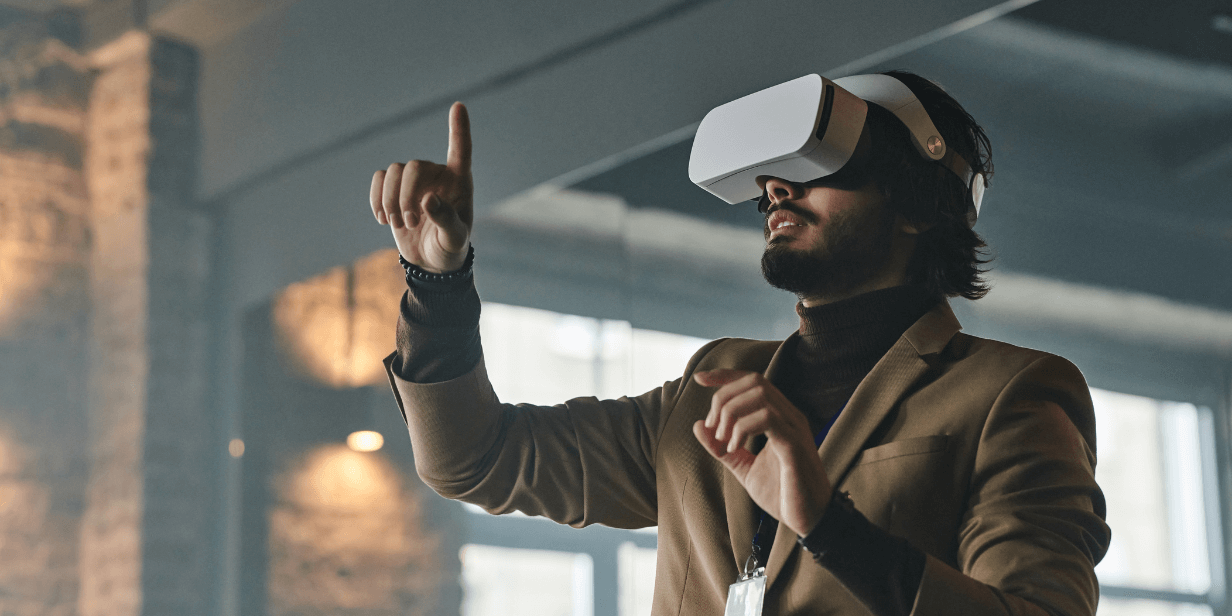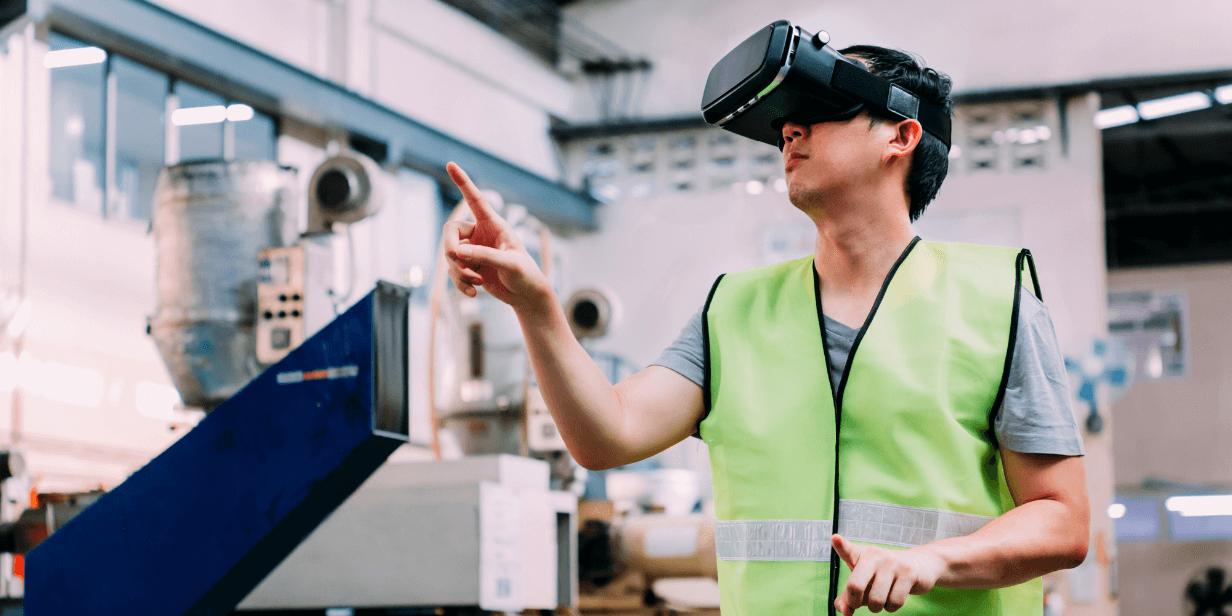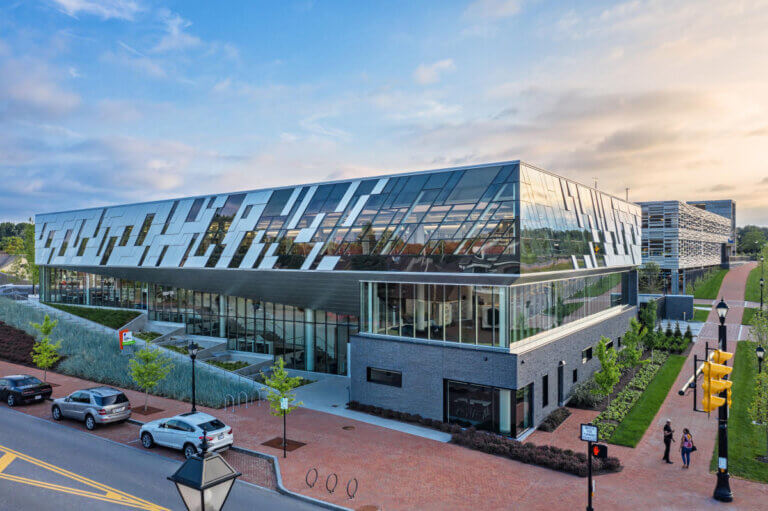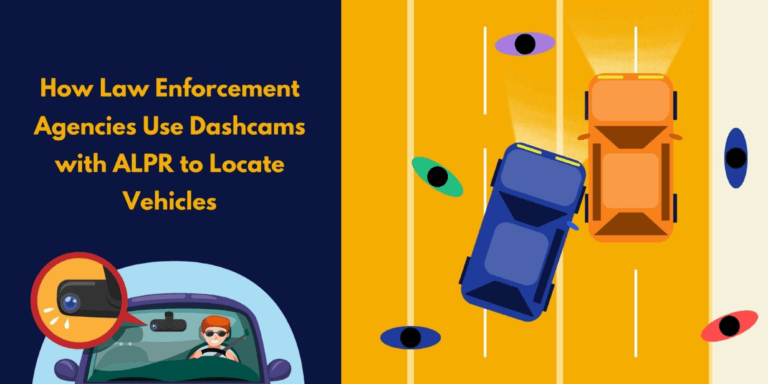
Model of smart glasses. Source: Canva
Technology has played a crucial role in meeting the need to heighten traffic enforcement for public safety and optimized roadways. For instance, a previous post on ‘ANPR for Mobile Phones’ illustrates how automatic number plate recognition (ANPR) can be deployed for convenient capturing of license data and access to quick data processing and accurate results. Compared to traditional ANPR systems, utilizing smartphone-based ANPR also has unique benefits, ranging from cost-effectiveness and ease of use to scalability and flexibility.
But beyond mobile phones, another emerging digital tool that can shape the future of efficient traffic enforcement are smart glasses. As smart glasses continue to evolve with innovative features while maintaining wearability, this article examines their use cases in improving traffic flow and empowering enforcement officers.
A Brief Overview of Smart Glasses

Man using Smart Glasses/VR Goggles. Source: Canva
Whereas traditional glasses are designed for vision enhancement, smart glasses are tech-enabled to perform advanced functions like multimedia recording, voice commands, and real-time communication. These capabilities are made possible through components like cameras, microphones, speakers, and sensors.
Over time, eyewear companies incorporated emerging technologies like augmented and virtual reality (AR/VR) into smart glasses for more immersive digital displays that simulate real-world settings. Thus, market research from Reportlinker.com notes significant growth in the global AR/VR smart glasses industry, poised to reach $29.30 billion in 2027 due to applications in various industries like gaming, healthcare, and military and defense.
Smart Glasses Applications in Traffic Enforcement
Now that the distinct features of smart glasses as wearable devices have been established, we look at this eyewear’s possible use cases in traffic enforcement.
High-speed Data Sharing

Man wearing Rayban glasses. Source: Canva
As traffic enforcers routinely gather and share data on road hazards and violations, smart glasses guarantee that data transmission is quicker and more efficient than smartphones. Take how the Ray-Ban Meta smart glasses enable hands-free audio, photo, and video recording through its built-in microphone, speakers, and 12MP camera, thus saving officers time when inputting and relaying information. Since these next-generation glasses have also been integrated with multimodal artificial intelligence for text translation and object identification, they can feed data directly into cloud-based ANPR systems for real-time, accurate analysis of vehicle models and license plates.
Real-time Anomaly Detection and Reporting

Busy streets of a big city. Source: Canva
Besides data processing and sharing, smart glasses can also be programmed with advanced algorithms to automatically recognize anomalies and subsequently alert, report, and create responses in real time. Such is the case for the MobiVision computer vision glasses, which leverage cloud-based portals, photo verification systems, and private ticketing software solutions for streamlined operations among traffic enforcers, parking officers, and security officials. Through voice interactions and manual commands, concerned parties can easily detect road anomalies and issue corresponding tickets and apprehensions with little to no physical contact.
Situational Awareness Training and Simulation

Man using VR simulation. Source: Canva
Given the increasing adoption of AR and VR in smart glasses, traffic enforcers can thus incorporate this eyewear into their situational awareness training and onboarding. They can take inspiration from how the Third Eye X Series mixed reality glasses simulate emergency situations to equip military officers with practical skills for response and diffusion. Likewise, members of traffic enforcement bodies can practice in safe, immersive, yet still realistic environments on how to address road accidents, direct traffic, and ensure overall road safety and efficiency.
The wide range of smart glasses applications reveals the essential role of advanced software and systems in transforming traffic enforcement to be more adaptive and agile. Coupled with high-speed ANPR, their full potential for increased compliance and security can be unlocked. Explore our website to learn more about our ANPR offerings.
Let’s see how the future of smart glasses evolves! Perhaps like the Booted! boardgame, as the product category progresses, it’ll get booted by another set of technologies!





